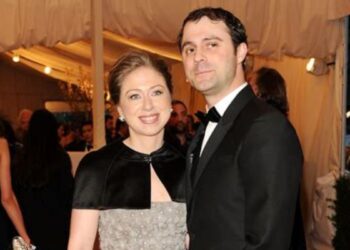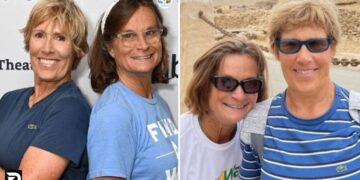Few figures in modern Spain embody the blend of discipline, courage, and civic engagement like Julio Rodríguez Fernández. Known first as a decorated Air Force general and later as a bold political voice, Rodríguez represents a fascinating evolution from the world of military command to public service. His journey reflects both personal conviction and a commitment to Spain’s democratic ideals.
In this article, we’ll explore who Julio Rodríguez Fernández is, his distinguished military career, his transition into politics, and what his story reveals about leadership, values, and change in Spain. Whether you’re interested in Spanish history, politics, or inspiring public figures, this deep dive into the life of Julio Rodríguez Fernández will provide valuable insight into a man who served his country in uniform and later sought to serve it through civic leadership.
Early Life and Military Beginnings
Julio Rodríguez Fernández was born on June 8, 1948, in Ourense, Galicia, Spain. From a young age, he showed an exceptional interest in aviation, technology, and national service. That passion led him to enroll in Spain’s Air Force Academy, where he began shaping the discipline and leadership qualities that would define his life.
His early career was marked by perseverance and adaptability. In an era of evolving global defence strategies, Rodríguez embraced modernization and technical proficiency. These traits earned him respect among peers and superiors alike.
During his formative years, Julio Rodríguez Fernández also developed a deep belief in the role of the armed forces as protectors of peace — not just instruments of power. This philosophy later influenced both his military leadership and his political ideals.
Rise Through the Spanish Air Force
As his career advanced, Julio Rodríguez Fernández became a prominent figure in Spain’s Air Force hierarchy. He specialized in air operations, logistics, and technological innovation — critical fields during Spain’s post-Franco modernization period.
Key Roles and Achievements
- Served as a combat pilot and instructor.
- Commanded air bases and logistics divisions.
- Promoted modernization in communication and air defense systems.
- Participated in international collaborations within NATO frameworks.
His dedication culminated in one of the highest honors for a military officer: being appointed Chief of the Defence Staff (JEMAD) in 2008 by then-Prime Minister José Luis Rodríguez Zapatero.
Under his command, Spain’s armed forces continued their participation in international peacekeeping missions, demonstrating the country’s commitment to global stability. Julio Rodríguez Fernández earned recognition for promoting efficiency, modernization, and the ethical role of the military in democratic societies.
Leadership as Chief of the Defence Staff (JEMAD)
Appointed during a politically transformative era, Julio Rodríguez Fernández served as JEMAD from 2008 to 2011 — the top military position in Spain. His leadership reflected strategic modernization, respect for civilian authority, and commitment to transparency.
Modernizing the Military
Rodríguez was instrumental in improving coordination between the Army, Navy, and Air Force. He emphasized the importance of technology, international cooperation, and adapting Spain’s defence structure to 21st-century challenges.
Under his watch, Spain participated in key NATO and EU operations, including peace missions in Afghanistan, Lebanon, and the Balkans. His approach balanced national defense priorities with humanitarian goals.
Ethical Command and Civilian Oversight
Unlike traditionalist leaders, Julio Rodríguez Fernández advocated for a military that serves democratic governance. His belief in civilian oversight and ethical conduct within the ranks strengthened public trust in the armed forces.
Transition into Politics and Role in Podemos
After retiring from active service in 2011, Julio Rodríguez Fernández surprised many when he entered politics. In 2015, he joined Podemos, the left-wing political party led by Pablo Iglesias.
A New Chapter in Service
For Rodríguez, politics was another way to serve his country — this time through dialogue, social justice, and public policy. His move symbolized a broader message: that leadership and civic duty transcend uniforms.
Although his entry into Podemos drew mixed reactions — with some praising his courage and others questioning the mix of military and political worlds — Julio Rodríguez Fernández remained consistent in his principles. He promoted peace, transparency, and fairness, the same values that guided his military service.
Political Contributions
- Advocated for defence reform rooted in democratic values.
- Supported Spain’s continued role in international peacekeeping.
- Encouraged investment in technology and renewable energy as national priorities.
- Promoted dialogue over confrontation in domestic and international affairs.
His candidacy represented an effort to bridge the gap between military professionalism and social progressivism — a rare combination in Spanish politics.
Views on Defence, NATO, and Global Peace
Throughout his career, Julio Rodríguez Fernández has balanced pragmatism with idealism. Though aligned with a left-wing party often critical of NATO, Rodríguez maintained that Spain’s membership in the alliance is necessary for stability.
He believes in responsible defence — one that upholds sovereignty while contributing to global peace. In interviews, Rodríguez often emphasized that modern security requires diplomacy, technology, and human rights, not just military might.
Key Defence Philosophy
- “Defence is not just about weapons, but about protecting people.”
- Advocated for cooperation within NATO while maintaining Spain’s independent stance.
- Called for greater investment in humanitarian and disaster-response missions.
His nuanced position allowed him to appeal to both progressives and moderates, making Julio Rodríguez Fernández an influential voice in discussions about Spain’s role in global affairs.
Legacy and Public Perception
The legacy of Julio Rodríguez Fernández is multifaceted. To many Spaniards, he symbolizes integrity, service, and modernization. His rare combination of military excellence and political activism demonstrates that leadership can evolve with society’s needs.
He also paved the way for discussions about the future of the armed forces in democratic contexts — highlighting the importance of ethics, education, and public accountability.
Even among critics, few deny his discipline and intellect. As Spain continues to redefine its global role, the example of Julio Rodríguez Fernández remains a guiding light for future leaders.
FAQs
1. Who is Julio Rodríguez Fernández?
Julio Rodríguez Fernández is a retired Spanish Air Force general and former Chief of the Defence Staff (JEMAD). He later became active in politics with the Podemos party.
2. What political role did Julio Rodríguez Fernández play?
He joined Podemos in 2015 and ran as a candidate in national elections, bringing his leadership experience and defence expertise into Spanish politics.
3. What are Julio Rodríguez Fernández’s views on NATO?
He supports Spain’s membership in NATO but emphasizes peaceful cooperation and responsible defence spending focused on humanitarian missions.
4. Why did Julio Rodríguez Fernández join Podemos?
He wanted to continue serving Spain by influencing defence and social policies aligned with transparency, democracy, and social justice.
5. What is Julio Rodríguez Fernández’s legacy?
His legacy includes modernizing Spain’s military, promoting ethical defence policy, and bridging the worlds of armed service and democratic politics.
Conclusion
The story of Julio Rodríguez Fernández is more than a biography — it’s a reflection of Spain’s evolution in leadership and civic responsibility. From the disciplined world of aviation and defence to the passionate arena of politics, his path shows that public service can take many forms.
His career teaches that integrity, commitment, and adaptability remain the true measures of leadership. Whether as a general, a policymaker, or a public servant, Julio Rodríguez Fernández continues to inspire conversations about Spain’s role in peace, democracy, and progress.
If you found his story inspiring, consider exploring more about Spain’s modern leaders and how they shape the future of civic and military collaboration.
















